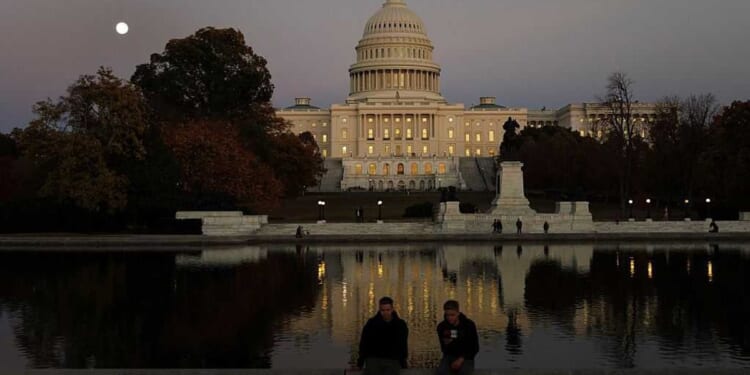At a recent competition law symposium in Washington, the Trump administration’s antitrust chief, Gail Slater, made a welcome promise to keep markets open to new competitors and innovation.
That pledge comes at a critical moment. Too many politicians in both parties still believe government’s job is to engineer economic outcomes rather than let consumers decide. That mindset misunderstands what makes markets dynamic — and often locks in the very problems regulators claim they want to fix.
Republicans and Democrats alike have embraced ‘industrial policy’ when it serves their political interests. They call it leadership, but it’s just another form of central planning.
Cronyism takes many forms: subsidies for favored industries, tax breaks for politically connected firms, or lawsuits targeting companies for being too successful.
Take the Biden Department of Justice’s lawsuit against Visa. The administration said it “feared” Visa’s market share, even though the payments space is crowded with competitors — Mastercard, PayPal, Square, Apple Pay, and a swarm of fintech startups. Instead of protecting consumers, the Justice Department tried to punish one company for competing well and dictate the terms of an already vibrant market.
That’s not protecting competition — it’s manipulating it. When government intervenes this way, it distorts incentives, weakens confidence, and replaces consumer choice with bureaucratic preference.
Consumers always lose
When regulators overreach, consumers pay the price. Every dollar a company spends fending off groundless lawsuits is a dollar not spent on innovation. Every subsidy handed to a politically favored firm skews the playing field against smaller rivals. And every new dictate slows the experimentation that keeps markets alive.
Officials who justify these intrusions claim they’re “protecting competition.” But true competition doesn’t need Washington’s help. It needs Washington to step aside. Entrepreneurs, not regulators, create rivals. Consumers, not bureaucrats, decide who wins. The invisible hand disciplines firms far more effectively than any government lawyer.
Free markets need fewer meddlers
Government’s legitimate role is narrow: preventing fraud, enforcing contracts, and protecting property. That’s a far cry from deciding which companies are “too profitable,” which mergers are “too large,” or which industries deserve “strategic” subsidies. When officials cross that line, they stop refereeing and start playing the game themselves — badly.
This temptation spans parties. Republicans and Democrats alike have embraced “industrial policy” when it serves their political interests. They call it leadership, but it’s just another form of central planning that shackles consumers and businesses alike.
RELATED: Smash the health care cartel, free the market

The cure is restraint
The best way forward is simple. Washington should stop punishing success and stop handing out favors to friends. It should let consumers and entrepreneurs, not bureaucrats and lobbyists, determine winners and losers.
America’s prosperity was built on open competition and voluntary exchange — not government micromanagement. Crony capitalism is just socialism by another name, and it breeds the same stagnation and corruption.
President Trump’s team understands that prosperity comes from freedom, not favoritism. If policymakers truly care about fairness, they should start by doing the hardest thing in politics: stepping aside.

















